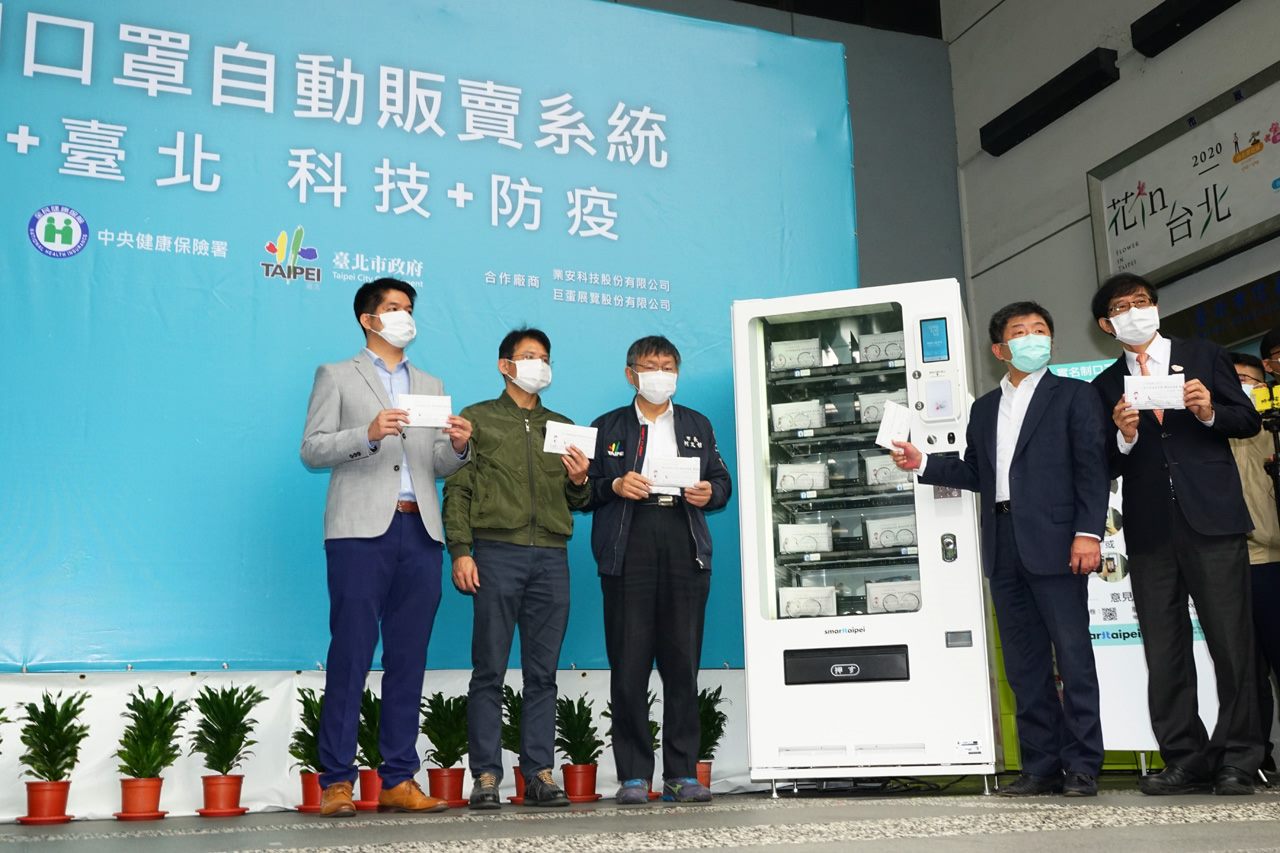City, Central Government Unveils Face Mask Vending Machine
 Mayor Ko Wen-je attended the press conference announcing the face mask vending machine on April 11.
Mayor Ko Wen-je attended the press conference announcing the face mask vending machine on April 11.
At the beginning of the press event, the mayor expressed his gratitude to all the dignitaries and guests for taking part. He noted that there are many people here today who are his friends from the medical field, including Health Minister Chen Shih-chung and Director Lee Po-chang of the National Health Insurance Administration (NHIA).
Like what the minister said in his address, Ko agrees with the importance of face masks in disease prevention efforts. He remarked that there has been a spike in confirmed cases over the past month due to those returning from overseas, but the number of indigenous cases remained relatively low. He cited the high standards of citizens for the accomplishment. He called upon the public to continue the practice of wearing masks, washing hands, and maintaining social distance to protect themselves during the pandemic.
The mayor pointed out that with the recent panic buy over products such as tissue paper, face mask sales – which is considered strategic supplies – is placed under government’s control to eliminate stockpiling. While mask supply needs to be rationed during the pandemic, people find it fairly inconvenient to form long queues to buy masks – especially for people who likes to emphasize SOP and efficiency.
Recalling city hall’s attempt to promote vending machine on school campuses last year, Ko remarked that he asked the Department of Information Technology to invite the vendors to a meeting to explore possibilities. The meeting’s conclusion pointed out the importance of linking up with the NHIA database, since individual’s quota for face mask purchase is connected with his or her NHI card.
With details of the project hammered out through frequent calls between Deputy Mayor Huang Shan-shan and Vice Premier Chen Chi-mai, Ko pointed out that the face mask vending machine is a successful example of collaboration between the central and local government to improve the welfare of citizens.
Ko noted that a rough calculation shows that a population of 23 million with access to 15 million face masks means roughly 0.6 mask per individual per day. Once the vending machine is up and running smoothly for a period of time, he suggests that the cycle of purchase can be extended to once per month. Of course, that depends on whether the inventory can sustain the waves of mask buying. For example, if we allow 9 masks every two weeks per individual, what about 18 masks every four weeks? Doing so will ensure compliance with rationing while reducing the frequency of lining up for masks.

![Taiwan.gov.tw [ open a new window]](/images/egov.png)
